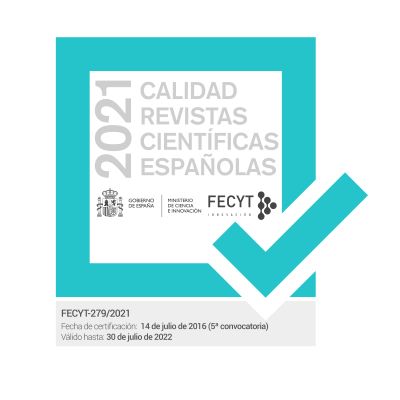Volume 28 (2003): Literature, Film and Cultural Studies
Abstract
ARTICLESCATHERINE BERNARD (University of Paris)“Forgery, Dis/possession, Ventriloquism in the works of A.S. Byatt and Peter Ackroyd” CHANTAL CORNUT-GENTILLE D' ARCY (University of Zaragoza)“Everything You Always Hated about Thatcher’s Britain: A Cultural Analysis of Mike Leigh's High Hopes (1988)” CHELVA KANAGANAYAKAM (University of Toronto)“The Anxiety of Being Postcolonial: Ideology and the Contemporary Postcolonial Novel” ELENA OLIETE PASCUAL (University of Zaragoza)“Making Visible the Invisible: Reversing the Codes of Dominant Culture in Madonna's Videoclip Don't Tell Me” PAULA MARÍA RODRÍGUEZ GÓMEZ (Los Angeles Unified School District)“Dylan Thomas's Animal Symbology in Celtic Tradition: The lnner Voice of a Poet” LUC VERRIER (University of Montpellier)“Sentimental Comedy in Martin Amis's "State of England" and "The Coincidence of the Arts"” REVIEWSJEAN CASHW. Flannery O'Connor: A Life (by Gretchen Dobrott Bernard. UNED) PATRICIA CRUZALEGUI SOTELOLa experiencia platónica en la Inglaterra decimonónica (by Pau Gilabert Barbera. University of Barcelona) DEBORAH L. PARSONSStreetwalking the Metropolis. Women, the City and Modernity (by Teresa Gómez Reus. University of Alicante)Downloads
Published
2009-12-31
Issue
Section
Articles
License
Authors who publish with Miscelánea: A Journal of English and American Studies agree to the following terms:
- Authors retain copyright and grant the journal right of first publication with the work simultaneously licensed under a Creative Commons Attribution 4.0 International License that allows others to share the work with an acknowledgement of the work's authorship and initial publication in this journal.
- Authors are able to enter into separate, additional contractual arrangements for the non-exclusive distribution of the journal's published version of the work (e.g., post it to an institutional repository or publish it in a book), with an acknowledgement of its initial publication in this journal.
- Authors are permitted and encouraged to post their work online (e.g., in institutional repositories or on their website) prior to and during the submission process, as it can lead to productive exchanges, as well as earlier and greater citation of published work (See The Effect of Open Access).


